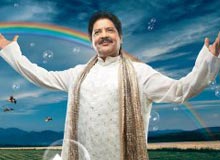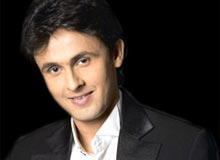 [hide]
[hide]* 1 Life and career
* 2 Awards
* 3 References
* 4 External links
[edit] Life and career
 Habib was born and brought up in Dhaka, Bangladesh. He attended South Breeze School in Dhanmondi. His father is Ferdous Wahid, who was a Bangladeshi pop singer during the 1970s and 1980s. During his early years, Habib picked up the keyboard and approached by playing popular tunes. Later in teen age, he was recommended by one of his teachers to play in a band as a keyboardist, and so he did. A few years later, he went to the United Kingdom in pursuit of higher education and studied music and audio engineering at the School of Audio Engineering in London. Later he started to work with other Asian music producers such as Nitin Sawhney. He had already produced and planned his music, however he needed a vocalist to develop his new album. While living in London, he was searching for the vocalist Kaya, who was a Sylheti restaurant owner.[3] In 2003, Habib released his first album Krishno, which proved to be a success in Britain and Bangladesh. The album Krishno had a unique mix of folk and modern electronica music, introducing a new sound to the Dhaka music arena.
Habib was born and brought up in Dhaka, Bangladesh. He attended South Breeze School in Dhanmondi. His father is Ferdous Wahid, who was a Bangladeshi pop singer during the 1970s and 1980s. During his early years, Habib picked up the keyboard and approached by playing popular tunes. Later in teen age, he was recommended by one of his teachers to play in a band as a keyboardist, and so he did. A few years later, he went to the United Kingdom in pursuit of higher education and studied music and audio engineering at the School of Audio Engineering in London. Later he started to work with other Asian music producers such as Nitin Sawhney. He had already produced and planned his music, however he needed a vocalist to develop his new album. While living in London, he was searching for the vocalist Kaya, who was a Sylheti restaurant owner.[3] In 2003, Habib released his first album Krishno, which proved to be a success in Britain and Bangladesh. The album Krishno had a unique mix of folk and modern electronica music, introducing a new sound to the Dhaka music arena.In the next few years, Habib had released five albums which were Maya (2004), Moina Go... (2005), Shono (2006), Panjabiwala (2007), Bolchi Tomake (2008) and Aboseshe (2008). He has featured new voices in all of his albums. Besides Kaya, he has showcased singers such as Helal, Julie, Konica, Nirjho, Shireen (in Panjabiwala) and Nancy in these albums. Habib first debuted as a vocal in "Moina Go..." where he performed two soft singles. Overall he is considered one of the most talented singer/composer of Bangladesh in recent time periods.[citation needed] . He also has his father, Ferdous Wahid singing a song in that album.

Besides album work, Habib made a huge amount of jingles that actually changed the way TV advertisements in Bangladesh used to be; most popular ones include Banglalink, Citycell, Pran-up, Meril Beauty Soap, etc. As he said in an interview, he loves "putting music behind pictures and that's why [he does] jingles", and he has also stated that he's a "die-hard fan of A.R.Rahman" -whose music has a significantly big influence on Habib's compositions.
He also has composed songs for movies such as Hridoyer Kotha, Akash Chowa Bhalobasha, Chandragrohon, I Love you, Eito Prem , Third Person Singular Number, etc; most of which were big hits. In this advanced technological age, Habib makes songs that "has the essence from the roots of Bangla music", says Kumar Bishwajit-(one of the most respected singers of Bangladesh) while recording a song under direction of Habib Wahid in a movie called Projapoti.




 ere full of struggles and he started off his career with a brief stint with the
ere full of struggles and he started off his career with a brief stint with the 

